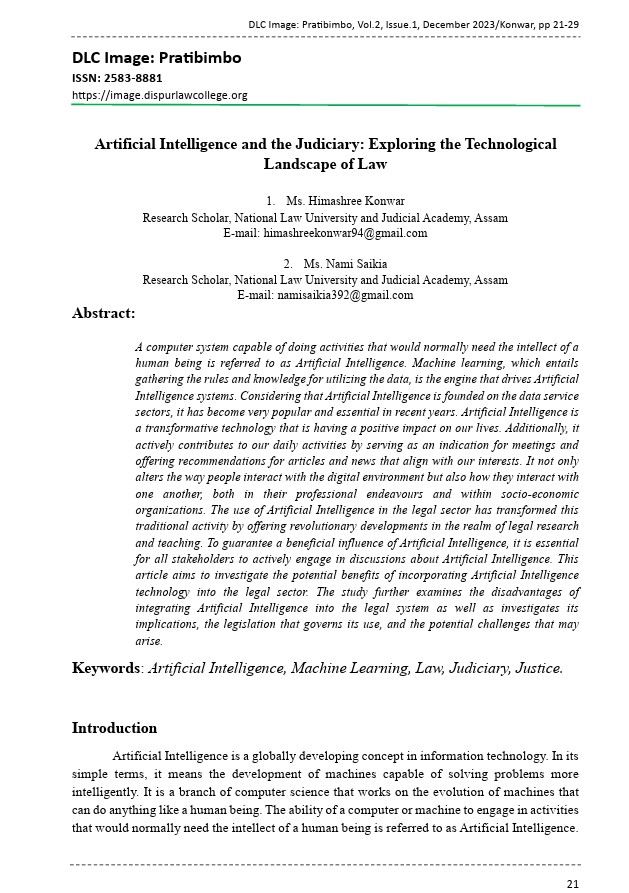Artificial Intelligence and the Judiciary: Exploring the Technological Landscape of Law
Main Article Content
Abstract
A computer system capable of doing activities that would normally need the intellect of a
human being is referred to as Artificial Intelligence. Machine learning, which entails
gathering the rules and knowledge for utilizing the data, is the engine that drives Artificial
Intelligence systems. Considering that Artificial Intelligence is founded on the data service
sectors, it has become very popular and essential in recent years. Artificial Intelligence is
a transformative technology that is having a positive impact on our lives. Additionally, it
actively contributes to our daily activities by serving as an indication for meetings and
offering recommendations for articles and news that align with our interests. It not only
alters the way people interact with the digital environment but also how they interact with
one another, both in their professional endeavours and within socio-economic
organizations. The use of Artificial Intelligence in the legal sector has transformed this
traditional activity by offering revolutionary developments in the realm of legal research
and teaching. To guarantee a beneficial influence of Artificial Intelligence, it is essential
for all stakeholders to actively engage in discussions about Artificial Intelligence. This
article aims to investigate the potential benefits of incorporating Artificial Intelligence
technology into the legal sector. The study further examines the disadvantages of
integrating Artificial Intelligence into the legal system as well as investigates its
implications, the legislation that governs its use, and the potential challenges that may
arise.
